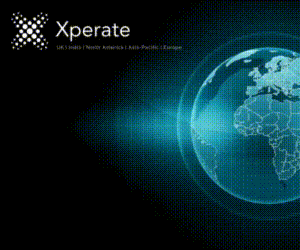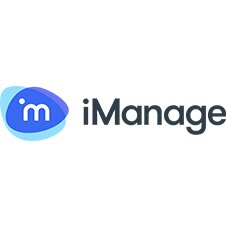Industry analysis from iManage: Reach for the sky
This article was originally featured as an industry analysis in Briefing June. To read the issue in full, download Briefing.
In recent years, the cloud has gained traction in the legal world, with many firms opting to purchase solutions that are available as a cloud service rather than a traditional on-premises deployment. It’s important to note, however, that vast technological innovations have taken place in the past decade, driven by leading internet companies such as Twitter, Facebook, Amazon and Google. Modern clouds are built on top of these innovations, and take full advantage of great leaps in scaling, resiliency and intelligent security. Consider the following a quick checklist of some of the key characteristics of a modern cloud.
Elastic computing – scaling without hindrance
Elastic computing is the new dominant paradigm, allowing a modern cloud to keep its site performing efficiently.
In a traditional cloud scenario, you have a fixed number of servers that need to be ‘assigned’ to specific functions. With a cloud document management system, for example, there might be 10 servers dedicated to database functions, five to optical character recognition (OCR), three to indexing, and so on.
However, with elastic computing, resources aren’t explicitly dedicated to any specific task, enabling the cloud to morph into different configurations based on real-time demands. For example, if a large migration activity requires additional processing and indexing resources, the cloud can adapt in real time and move resources away from OCR and towards indexing.
This elasticity translates into much higher performance than a legacy cloud with fixed and ‘assigned’ resources could deliver, because resources are always being intelligently allocated to the area of greatest need.
For end users, this means a fast and responsive system where performance does not degrade when load or demand increases — allowing users to carry out their key daily tasks and get their work done without any of the sluggishness that can accompany legacy cloud offerings.
Resiliency and availability – uninterrupted uptime
A modern approach to the cloud also recognises that components can and will fail – and the application is designed to automatically route itself around these inevitable component failures.
Additionally, a modern cloud will maintain multiple data copies in active systems to ensure fast recoveries if an entire data centre becomes unavailable due to an outage. This type of availability stands in contrast to cloud vendors whose data availability approach simply consists of taking data snapshots and replicating them to a secondary data centre.
The resilience of the modern cloud extends to code releases: a modern cloud can stay online during code updates, so there’s no longer any outage window or service interruptions when pushing out patches, bug fixes, or new releases.
Eliminating this downtime ensures that legal professionals don’t have to miss a single billable hour in their day.
Intelligent security – advanced protection of sensitive data
Encryption for stored and in-motion data is a base expectation for a cloud service. A modern cloud takes a more sophisticated approach to managing system and application security. It recognises that traditional defences — like firewall and antivirus — are no longer enough, especially in an era of sophisticated social engineering techniques like phishing.
A modern cloud incorporates threat-monitoring systems for network intrusion detection (external threats) as well as application usage (internal threats). Analytics with machine-learning/AI on application usage help to detect abnormal behavioural patterns – allowing modern clouds to proactively identify and defeat malicious activity. For firms, this means a better way to protect client data – as well as the firm’s own reputation.
Capitalise on cloud
If a cloud service doesn’t capitalise on the spectacular technological innovation that has taken place in the past decade, it’s not a modern cloud. A modern cloud is smart, secure, fast, agile and always up.
By looking for a cloud offering with elasticity, resilience and availability, and intelligent security, customers will be well on their way to enjoying these benefits immediately and gaining a platform for transformative change in the future.



